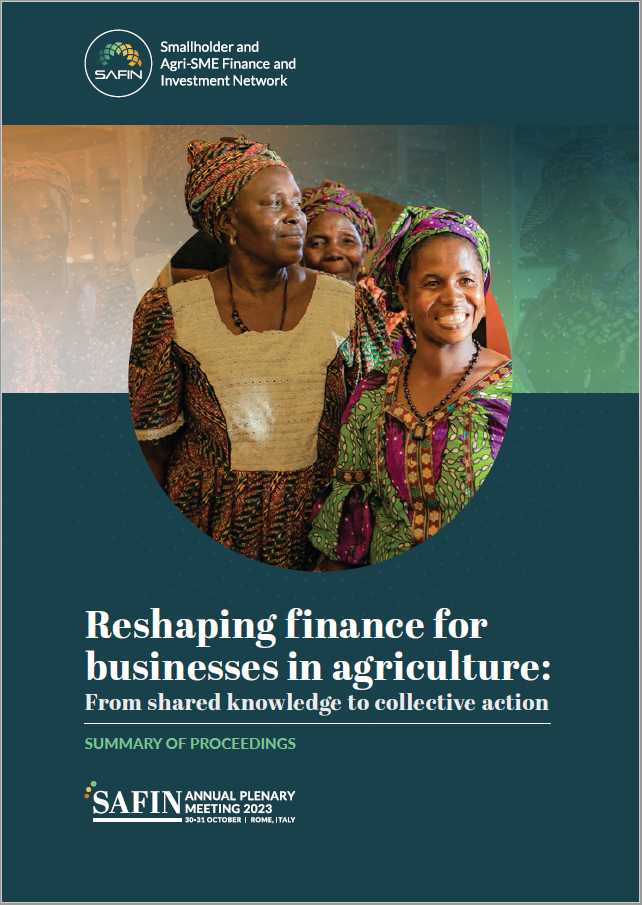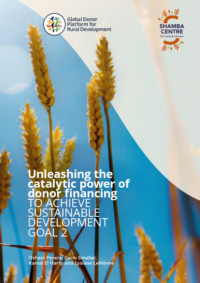Financial service providers like commercial banks, non-bank financial institutions, cooperatives and microfinance institutions are front-line couriers of loans in local currencies to agricultural SMEs in sub-Saharan Africa.
Given their wide coverage in local markets, financial incentives such as guarantees or first loss facilities that are meant to entice them to extend more loans to these enterprises are growing in popularity.
- But what level and types of incentives work best for banks in Africa?
- Which other incentives have worked elsewhere that may be applied in the region?
- Will financial incentives change their behaviour in the long term?
- Andrew Ahiaku, Director and Head of Financial Sector, Aceli Africa Moderator
- Phyllis Wanjiku Kimani, Chief Retail Officer, Family Bank
- Evans Martin Nakhokho, Chief Manager, Centenary Bank
- Henry Bwogi, Director of Retail and Business Banking, Tanzania Commercial Bank
Publications
SAFIN (2024) AnnualProgressReport2023 # 33 pp.
- As 282 million people faced acute hunger in 2023, global agri-finance players joined hands to unlock the growth potential of agricultural enterprises and farmers through the Smallholder and Agri-SME Finance and Investment Network (SAFIN).
- The SAFIN Annual Progress Report 2023 captures the network’s achievements in fostering collaboration with the agricultural finance ecosystem, sharing new market intelligence, advocating for small businesses and farmers, and building regional partnerships.
- This report is dedicated to bilateral and multilateral donors engaging in blended finance, who aim to boost access to commercial finance by agrifood small and medium enterprises (SMEs).
- The investigation included a series of interviews which explored how donors, philanthropic organizations, public funds and blended capital funds can make their funding effective and act as an incentive for achieving SDG 2.
- The report shows the risk appetite of donors and DFIs is on the rise. This is a unique opportunity for donors, DFIs and their beneficiaries in developing countries to make widespread changes by implementing the recommendations of this report.
- See PAEPARD blogpost 9 April 2024





No comments:
Post a Comment